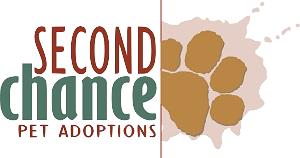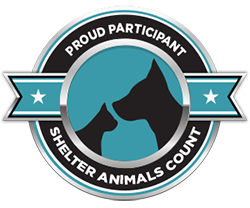
Dear friends,
On behalf of the Board of Directors of Second Chance, I have some exciting news to share with the Second Chance family: we are increasing the number of affordable spay/neuter surgeries available to animals in and around Raleigh!
While rescue and adoption are vital, life-saving services for homeless animals, we have always known that spaying and neutering animals is the only way to end animal homelessness, which is why—since our inception 35 years ago—we have spayed and neutered every cat and dog we’ve rescued prior to adoption. Of course, we’ll continue to do so, but over the last few years, we’ve also been supporting these procedures for animals outside of our adoption program and are committed to increasing our outreach. I’d like to share more here about why and how we’re doing that.
Why should we spay and neuter cats and dogs?
Spaying and neutering pets—preventing cats and dogs from giving birth to unwanted kittens and puppies—is the most effective way to reduce euthanasia in county shelters. First, with space at a premium, keeping animals from coming into the shelter will enable those already inside shelters to remain there until they find an adoptive home; otherwise, long-timers are often euthanized to make room for new intakes. Secondly, many cats born into homelessness—on the streets, without human caretakers—are feral (unable to be handled without scratching, biting, and so on); when they enter shelters, they are deemed unadoptable and are euthanized. Spaying/neutering feral cats and returning them to their colonies also has the impact of reducing colony size over time, which decreases the number of cats living on the streets.
Spaying/neutering pets also benefits those pets and humans: neutering male cats reduces their risk of prostate cancer and reduces their instincts to roam, fight, and mark territory (in-home or elsewhere) with urine. Spaying female cats helps to prevent uterine infections and breast tumors, many of which are cancerous. Healthier, happier animals require less vet care, live longer lives, and are less likely to trigger their owners, caregivers, or the residents of the neighborhoods they roam around to bring them to shelters.
What has Second Chance done to spay/neuter non-Second Chance animals?
Over the past four years, Second Chance has collaborated with other nonprofits to increase access to affordable spay/neuter surgeries. We’ve worked with some organizations who administer voucher programs, through which feral cat colony caregivers and cat owners with low incomes are able to spay/neuter cats for very little money; organizations like ours then cover the remaining cost of the surgeries. We’ve supported Kitty Clip (Friends of Wake County Animal Center), JoCo PETS (Johnston County Animal Protection League), and SNIF (Spay Neuter in Franklin County, by Paws for Life). We also received a grant from the BISSELL Pet Foundation to spay/neuter 300 feral cats in Johnston County in 2021; with help from other nonprofits, we trapped, spayed/neutered, and returned these cats.
What will Second Chance be doing to spay/neuter more Second Chance animals in the future?
Second Chance Pet Adoptions is committed to building on our prior efforts by setting aside $400,000 of the bequest left to Second Chance by one of our adopters, Robin Gager (pictured above; learn more HERE), for increased spay/neuter funding. While we considered opening a spay/neuter clinic of our own or starting a new program by Second Chance, it was of extreme importance to us that we be efficient to stretch every dollar as far as it will go (to as many animals as possible). For that reason, we have opted to amplify existing programs for feral cats and pets in low-income households, starting with over $100,000 in the current fiscal year (July 1, 2022 – June 30, 2023).
Through extensive research, Second Chance has identified four counties that we deemed high-priority; these rural communities generally fall within 100 miles of Raleigh but have far less access to the kinds of resources we enjoy in urban Wake County and a greater percentage of residents who fall below the poverty line. Using county shelter data collected in 2021, we used euthanasia rates to determine how much support would be needed to ensure that at least 90% of the animals who enter the shelters make it out alive (through adoption, a return to their owner, or transfer to a rescue organization). Ultimately, we focused our attention on Harnett, Moore, Franklin, and Person Counties and, by contacting community members, did a deep-dive on each to determine what existing resources, if any, helped residents with affordable spay/neuter procedures.
At the same time, we initiated discussions with Harmony Animal Rescue Clinic and SAFE Care Clinic (a program run by SAFE Haven for Cats) to see how a partnership between them and Second Chance could increase access to affordable surgeries. While these discussions are still ongoing, both have agreed to open up additional slots on a regular basis for animals (primarily cats) who need these surgeries.
- Harmony will provide 10 slots per week; these will be allocated in part to cats in the Harnett County shelter, be they ferals who will be returned to their colonies afterwards or adoptable cats who would not have otherwise been spayed/neutered prior to adoption (shelters in Harnett County typically have just 1 to 3 slots per week—anywhere—for these surgeries). They will also be available to Kitty Clip voucher-holders; these vouchers are accepted at just a few clinics/vets’ offices, so there are waiting lists for voucher-holders, and many voucher-holders have limited transportation and could stand to have a voucher-accepting clinic located closer to them. The Harmony clinic now provides an option for a much-needed clinic in the southwestern part of Wake County.
- SAFE Care will provide one day a month. The SAFE Care clinic will primarily be used to send feral cats in the Franklin County shelter back to their colonies/neighborhoods after they are spayed/neutered and to support targeted trap-neuter-vaccinate-release efforts by another nonprofit, Operation Catnip.
In addition to these collaborations, Second Chance is beginning a new partnership with Fine Whines and Lickers, a rescue that provides low-cost spay/neuter surgeries to low-income households in Person, Caswell, and Rockingham Counties. We have committed funding so their program can accommodate more animals.
Lastly, the Ruin Creek Animal Protection Society is opening a new spay/neuter clinic in Vance County that is intended to support multiple communities, including Person and Franklin Counties. Since they were in need of equipment and were going to delay their opening until they had raised more money, we gave them a significant grant to procure what they needed to spay and neuter pets as soon as possible.
PLEASE NOTE: This information is only being shared to keep our community informed; these clinics and programs are not prepared at this time to accept calls or requests for surgeries or slots from organizations or the public.
Through all of these efforts and more, Second Chance is excited to advance our mission by providing additional—vital—resources towards the solution to our community’s companion pet overpopulation issue. We’re also connecting with like-minded organizations to address our shared goals and are eager to deepen these partnerships with our friends in rescue. We thank Robin Gager for enabling us to do this important work, as well as the other donors and the volunteers who ensure our day-to-day work continues so we can rescue, and find adoptive homes for, animals in need.
Sincerely,
Dave Ballesteros
President
Board of Directors
Second Chance Pet Adoptions




